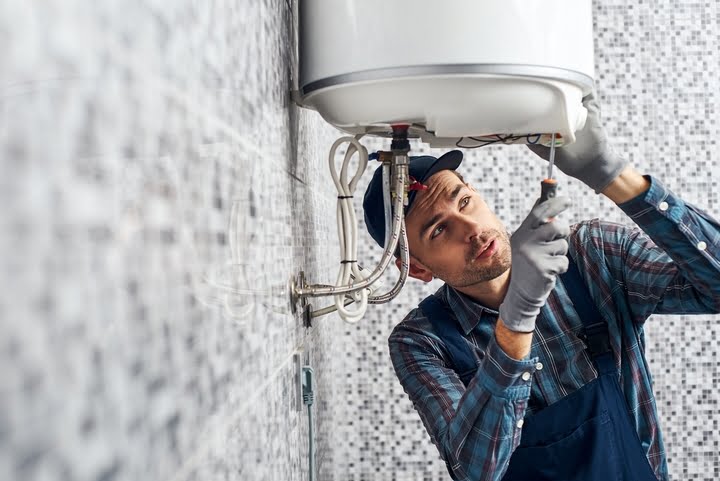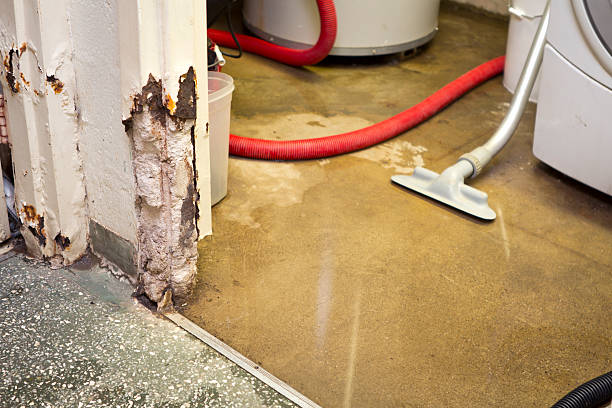This post following next in relation to Maintaining & Draining a Water Heater is definitely captivating. Read on and make your own assumptions.

Whether it lies in the cellar or a separate space, damaged hot water heater can create tension. A typical unit holds 80 gallons, so an overnight leak will certainly cause a flood. This leads to significant home damage with soaked walls and also floorings. Besides, having no hot water supply is likewise frustrating. If you are dealing with these issues, remember of the following:
Shut Off Source Of Power
Prior to calling the plumber, shut off a gas hot water heater by turning the temperature dial. This is generally located at the top of the thermostat. If you have a version that works on electric power, switch off the circuit breaker. This will avoid electrocution, particularly if there is a leakage as water is a conductor. Commonly, the burner shuts off when the water hits a specific temperature. But with a broken tank, it may malfunction. Cutting it off assures you stay safe.
Cut Off the Cold Water Supply
Cut off the containers tap water supply from the source. This goes from your major water line right into the storage tank. When your tank remains in good condition, the cold water stops filling out when the storage tank is full. Yet considering that it is leaking, the water will certainly continue to stream. Close the shutoff discovered at the top of the heating unit. Rotate this clockwise to close it off. If you can not find it or reach it, you have to shut off that major supply of water line outside your home.
Call the Plumber
After doing the first two security steps, you should call your plumber to come right now to repair a ruptured hot water heater. Bear in mind that your unit will certainly not just conk out dramatically overnight. There are normally signs that your aging hot water heater has debris accumulation in the inside. Keep in mind of the following:
- Rusty water coming from the hot water faucet
- Weird noises from within that show sedimentation
- Leaking links
- Pooled water under the container as a result of tiny pinholes
- Don't wait for major flooding to call the plumber. By then, you will need to spend more to recover your building. Instead, as soon as you detect these indications, have an expert pertained to check your water heater give thanks to. Generally, hot water heater have a life expectancy of about 8 to 12 years. With normal assessment and upkeep, you can prolong its life.
Clean Up Building
After calling the plumber, record damages by taking notes and pictures so you can assert your home owner's insurance policy. Eliminate any kind of standing water to prevent mold and mildew and mold growth. If you have a completely submersible water pump, make use of that to drain the water.
Bear in mind, if you discover any kind of concerns with your water heating system, call the pros right away. You can not take this issue lightly because a defective thermostat can increase water temperature to a hazardously high degree, leading to unintentional burns.
Whether it is located in the cellar or a different space, broken water heaters can cause anxiety. Before calling the plumber, closed off a gas water heating system by turning the temperature dial. After doing the first two safety and security actions, you should call your plumber to come right away to deal with a fractured water heater. If you have a submersible water pump, use that to drain the water. Remember, if you notice any problems with your water heating system, call the pros right away.
Is My Water Heater Broken?
The Water Heater is Old
No appliance will last forever. This includes a home’s water heater. During its lifespan, residents are going to face a situation where a new water heater installation will be necessary. The biggest problem with this is that most people are not sure when their water heater expires. Not knowing this can lead to serious risks if the unit begins to act up due to old age.
Most makes and models of water heaters will last between eight and 10 years. While 10 years is the age when water heater replacement is highly recommended, the need to replace the unit may occur before this time or after. If the unit doesn’t show any symptoms of a problem, it is a good idea to replace it at the 10-year mark (from the manufacture date).
Some of the symptoms that indicate a new unit is needed include rusting, leaks, noises, and a failure to heat up the water. Also, note that not all units have a 10-year life expectancy. The main exception to this rule is that a gas unit will last for six to eight years.
Rusty Heater Inlet Valve or Water
While steel is the strongest material on earth, it does have a weakness – rust. If corrosion occurs on a steel surface, it will begin to spread and eat through the steel in certain areas. On water tanks and pipes that are made of steel, rust is a warning sign of an impending leak.
The issue for many is trying to figure out if the rust is coming from the water heater or the pipes that lead to the faucet. If rust is seen, it is a clear indication that water heater service from the professionals is needed.
If rusty water appears out of the faucets in the bathtub or sink, it likely means a rusty water heater. If there is rust near the water inlet or the pressure relief valve, rust has likely developed inside the tank. If tap water appears rusty, it may be an issue with the pipes.
Strange Sounds from the Water Heater
Are there strange sounds coming from the tank? As a water heater gets older, rumbling noises may develop and get louder and louder as the water in the tank heats up. In homes where large amounts of hot water are used, the issue is likely going to be even more obvious when more serious issues arise. If there is a strange or loud noise coming from the unit, it is probably because of sediment buildup. A good way to remedy this problem is by flushing the heater. If this does not work, then a new unit may need to be installed.
Leaks
As a water heater gets closer to the end of its useful life, there is a higher chance there will be water around the tank. If there is water, this usually means leaks are occurring. Based on where the unit is located in the home, a leak may result in serious property damage.
Leaks are usually caused by expansions in the metal tank. The expansions occur as time passes and as the inside body of the tank is exposed to multiple heating cycles per day. When a fracture forms, the gap will be slight enough to hold the water in; however, in more serious situations, this will not be the case. If the tank is idle, the water will not leak but when the metal expands during each heating system, small amounts of water will get through the gap.
Do you enjoy reading about Maintaining & Draining a Water Heater? Post a remark down the page. We'd be pleased to hear your opinions about this write up. We hope that you visit us again later on. Kindly take a moment to distribute this blog posting if you appreciated it. I treasure reading our article about Broken Water Heaters.
Further Details

Comments on “Vital Steps Homeowners Should Take When Managing Faulty Hot Water Systems”